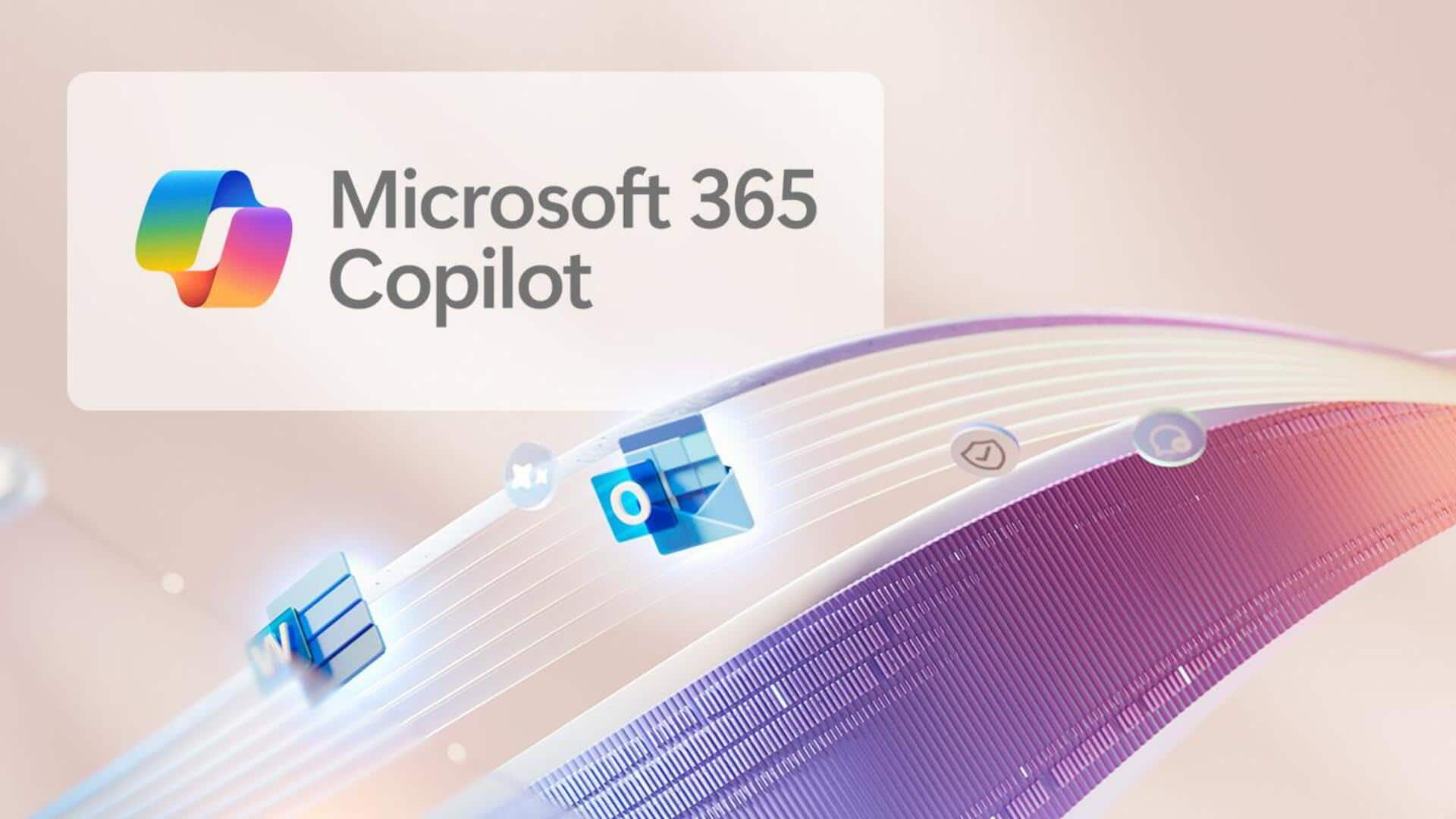
Microsoft to integrate non-OpenAI models into 365 Copilot AI assistant
What's the story
Microsoft is planning to integrate internal and third-party artificial intelligence (AI) models into its flagship AI assistant, Microsoft 365 Copilot. The move comes as the tech giant looks to reduce its dependence on OpenAI's tech and save costs. The strategy marks a departure from previous years, when Microsoft touted its early access to OpenAI's models, including the GPT-4 powering the launch of 365 Copilot in March 2023.
Strategy change
Concerns over cost and speed prompt strategy shift
The move to lower 365 Copilot's reliance on OpenAI stems from cost and speed concerns for enterprise users. However, a Microsoft representative confirmed that OpenAI continues to be a partner on frontier models, which refers to the most advanced AI models available. The current deal between Microsoft and OpenAI allows the software giant to customize OpenAI's models for its products.
Efficiency
Microsoft's efforts to enhance Copilot's efficiency
Along with developing its own smaller models like Phi-4, Microsoft is also customizing other open-weight models to make 365 Copilot faster and more efficient. Ultimately, the idea is to reduce the operational cost of 365 Copilot and possibly pass on these savings to end customers. Microsoft's leaders, including CEO Satya Nadella, are closely monitoring this initiative.
Business alignment
Microsoft's other business units follow suit
The strategy is in line with other Microsoft business units that have changed their use of OpenAI models. For example, GitHub, which Microsoft acquired in 2018, added models from Anthropic and Google in October as alternatives to OpenAI's GPT-4o. Microsoft's consumer chatbot Copilot was also revamped in October and now runs on both in-house and OpenAI's models.
Market performance
365 Copilot's market performance and future prospects
Though there are no specific sales numbers on how many licenses Microsoft 365 Copilot has sold, analysts at BNP Paribas Exane have noted an uptick in adoption. They expect Microsoft to sell 365 Copilot to over 10 million paid users by year-end. Additionally, a November blog post by Microsoft revealed that 70% of Fortune 500 companies are already using this AI assistant integrated into its suite of enterprise software comprising Word and PowerPoint.